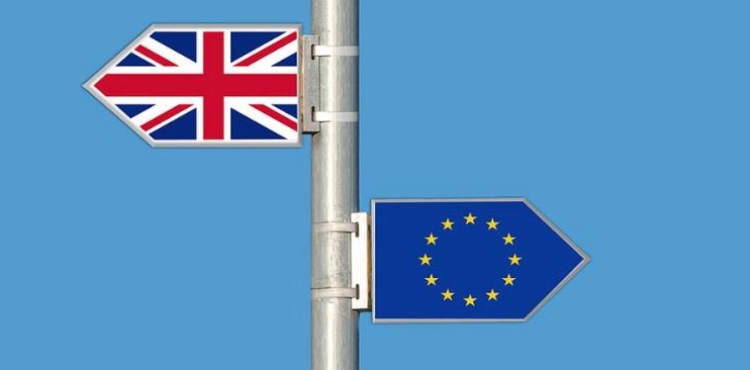London _ Agencies
According to the most pessimistic predictions, on Saturday 30 March March 2019 could be one of the most chaotic days in Europe´s post-war history, if Britain left the EU without an agreement.
The idea of this happening was seen as practically impossible, but time is running out.
On Monday, it will be 200 days since Britain announced the departure of the European Union in what is known as the "Precontext", and talks in Brussels are still proceeding at a slow pace. Without a deal on withdrawal, any agreement on a transition period would be extinguished until the end of the year and would be void by 2020.
This can affect millions of people, either directly or indirectly.
Some say that vehicles can be piled on both sides of the English Channel, with about 11,000 and 500 trucks crossing each day.
Under the rules of the World Trade Organization (WTO), in the absence of agreement on a package, it is assumed that all vehicles should be inspected and customs duties levied on many cargo transported by cars.
This can cause shortages of essential medical supplies at British hospitals, and prices can rise in supermarkets, where shelves can be emptied of certain goods.
"Leaving the EU without an agreement will cause a lot of inconvenience for millions of retirees, travelers and drivers," The British Insurance Association said in a recent statement.
The question is, will politicians allow this to happen, or are these horror stories part of a neat trick that aims to make the other party surrender?
In the worst case, it is possible to cancel flights on both sides, as the legal basis for cross-border aviation will not be effective.
But the British Minister for the exit of Britain from the European Union "preicit ", Dominique Rap, and other members of the government of Prime Minister Teresa May, who are putting contingency plans for Britain´s departure from the European Union if no agreement is reached, while at the same time showing their commitment to ensuring that such That agreement, they say such allegations are nonsense.
The EU has worked long on the assumption that Britain´s exit from the EU in an unorganised manner will have far worse consequences for Britain, compared to the remaining 27 bloc members with its 450 million consumers.
But the exit scenario without agreement could cause serious harm to the EU.
Failure to reach an agreement would have political consequences for the Republic of Ireland, which must impose customs controls on the border with Northern Ireland, which all parties say they want to avoid at all costs.
This could leave a gap in the EU budget, which is estimated at billions of euros, while London´s pledge to pay about 40 billion euros ($47 billion) as a settlement to leave the union will be void.
There may be many bad surprises for British officials and the European Union, even if they try to plan a British exit from the EU without agreement.
But John Curtis, a professor of political science at the University of Strathclyde, says that the perceived economic consequences of Pribore have affected British public attitudes towards the departure of the European Union, apparently resulting in a slight change in the number of voters from the pro-departure camp to the other pro To stay.
The idea that Britain could embark on a turbulent economic path has contributed to a "perceived but modest" change in support of another referendum on Britain´s exit from the European Union, according to opinion polls, Curtis wrote this week.
Several parliamentary opposition lawmakers and some pro-EU conservatives supported the growing "People´s vote" campaign, hoping to hold another referendum in which many hoped Britain would remain in the European Union.
Simon Hicks, a professor of political science at the London School of Economics, believes that the departure of Britain from the European Union in a vulgar and mysterious way is more likely than an exit without agreement or rotation towards the opposite direction based on a second vote.
Hicks said in his tweet on the social networking site "Twitter " last Thursday: "It seems that we are increasingly moving towards a vague" political declaration "on the future relationship, along with the (withdrawal agreement) and the transitional Agreement ".
Hicks said the details of the future trade arrangements will only be agreed during the transition period, which means that Britain and the European Union will formally be separated in March March through a face-saving deal for what other commentators have called "Priesit without Vision."












